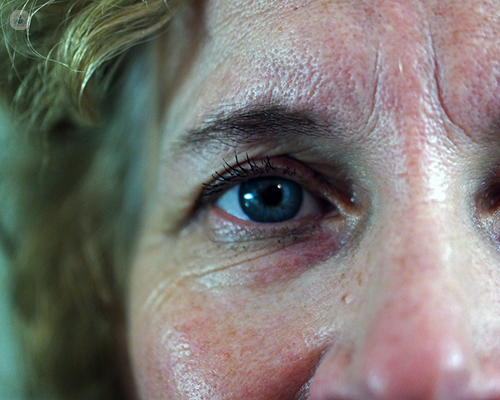Lupus
Dr Clarissa Pilkington - Rheumatology
Created on: 11-13-2012
Updated on: 05-30-2023
Edited by: Conor Lynch
What is lupus?
Lupus is a disease that damages the immune system, occurring as a result of your own immune system mistakenly attacking healthy cells and tissues. This can cause damage to many parts of the body, including the joints, skin, kidneys, heart, lungs, blood vessels, and brain.
There are, in fact, many different types of lupus. The main ones include the following:
- Systemic lupus erythematosus: this is the most common type of lupus. It may either be mild or acute, and can damage many parts of the body.
- Juvenile systematic lupus erythematosus: this is lupus that starts in childhood.
- Discoid lupus: this type of lupus causes a rash on the skin that won't go away.
- Subacute cutaneous lupus: this causes blisters after exposure to the sun.
- Drug-induced lupus: this kind of lupus is caused by some medications, and, fortunately, usually disappears when you stop taking the medication in question.
- Neonatal lupus: this extremely rare type of lupus affects newborns, certain antibodies in the mother’s body may have a role in causing it.

What is juvenile lupus?
Juvenile lupus, which is also known as juvenile systemic lupus erythematosus, is a chronic form of lupus that affects children. This means that the child who suffers from lupus can suffer severe periods of lupus, and then mild, then followed by severe again.
The main symptoms associated with juvenile lupus include chest pain with a deep breath, fatigue, fever, mouth sores, hair loss, sensitivity to sunlight, headaches, seizures, tingling, vision problems, difficulty breathing, and fingers that change colour when cold.
What is the prognosis of the disease?
A cure for lupus has not yet been found. However, if treatment is successful, it is rare for a person to die from lupus. Roughly between 80 to 90 per cent of people diagnosed with lupus live for more than 10 years after learning they have the disease. In addition, people who have some organs affected by the disease, but whose life is not at risk, usually live a completely normal life if they follow the advice of their specialist, which is to take prescription medications and to seek help if there are undesirable side-effects, or if new symptoms of the disease appear.
What are the main symptoms of lupus?
Lupus can have a variety of symptoms, with the most common ones being:
- pain or swelling in the joints
- muscle pain
- fever
- red rashes on the skin, mostly on the face and in the form of a butterfly
- chest pain when breathing deeply
- hair loss
- white or purple fingers or toes
- sunlight sensitivity
- swelling in the legs or eye area
- sores in the mouth
- swollen glands
- feeling of tiredness
These symptoms can be intermittent and are referred to as "flares”. These flares may be mild or severe, and new symptoms may appear at any time.
What specific medical tests are required when diagnosing lupus?
There is no single test to diagnose lupus, as it can sometimes be confused with other diseases. In fact, it can take months or years for a specialist to diagnose lupus. Some of the medical tests that the specialist may use to diagnose lupus include:
- a detailed evaluation of someone’s medical history
- full physical examination
- blood tests
- skin biopsy
- kidney biopsy
What causes lupus, and who is most at risk?
The cause of lupus and its risk factors are currently unknown. Any individual can suffer from lupus, but women are at a slightly higher risk of contracting it. Lupus is two to three times more common in African-American women than in white women. Hispanic, Asian and Native American women are also more likely to develop lupus. African-American and Hispanic women are more susceptible to the most severe types of lupus.
Can lupus be prevented?
Lupus can occur without any symptoms, so it is difficult to know if it can be completely prevented during a person's lifetime. The best thing you can do to reduce the chances of developing lupus is to follow a balanced diet and to exercise regularly. In addition, staying as active as possible and avoiding a sedentary lifestyle can help you build strength, control your weight, and even improve your mood. Check with your specialist about the type of exercise you can do, as the organs affected by lupus could complicate the practice of some exercises.
Taking specific supplements can add nutritional value to your diet, and some believe may also help to reduce inflammation throughout your body. Krill oil, for example, contains nutrients that can improve your cardiovascular health if taken regularly.
How is lupus treated most effectively?
The aim of treatment is to reduce and control the inflammation seen in lupus. The main aims of treatment are to:
- reduce or prevent flares
- treat symptoms as soon as they appear
- reduce organ damage
Treatment plans may be accompanied by medication for the following reasons:
- to reduce inflammation and pain
- to boost the immune system
- to prevent or reduce joint damage
- to balance hormones
In addition to taking medicine for lupus, you may need to take medicine for other problems related to lupus, such as high cholesterol levels, high blood pressure, or infections. There are alternative treatments that take a completely different path when compared with conventional treatment, but there is currently no medical evidence that these work in lupus. Some alternative or complementary approaches, however, may help improve the quality of life of those with a chronic illness like this. Before undertaking any alternative treatment, you should consult a specialist.

Which specialist treats lupus?
People with lupus will generally see several different doctors, including rheumatologists, dermatologists, cardiologists, as well as pain specialists, but to name a few.
Is lupus hereditary?
Lupus is not an inherited disease. However, there are families that have a predisposition to autoimmune diseases such as lupus, which is likely to be a combination of genes and environmental factors.
What can happen if a pregnant woman has lupus?
There is a possibility that certain autoantibodies can be passed across the placenta and affect the foetus. This can cause neonatal lupus in the baby, which varies from a mild skin rash (which often goes within a few months) to cardiac problems. It is important for lupus patients to be carefully monitored during their pregnancy.
Can I sunbathe if I have lupus?
Unfortunately, any exposure to direct sunlight can result in a relapse of lupus, thus causing the individual's symptoms to worsen. It is therefore highly advisable that patients with lupus avoid exposing themselves to either solar or artificial ultraviolet (UV), UVA, as well as UVB rays. Patients with lupus must prioritise applying a high factor of sun protection cream, whilst also wearing long-sleeve clothing, as well as a hat with a peak when spending time in the sun.

How effective is intravenous immunoglobulin therapy as a possible treatment for lupus?
Intravenous immunoglobulin therapy can significantly help patients who suffer from weakened immune systems to fight off infections. In patients with lupus, this therapy can potentially increase one's low red blood cell counts. Unfortunately, there is no guarantee that intravenous immunoglobulin therapy will help someone living with lupus, as it does depend entirely on the individual and how they react to the therapy.
What are the main triggers?
As previously mentioned, sunlight and direct, prolonged exposure to it is one of the main triggers for people with lupus. Other triggers include stress, infections, trauma, hormonal changes, and certain drugs such as some antibiotics.
Can I travel if I have lupus?
Ultimately, the severity of a patient's lupus will dictate this, and it is important that patients with lupus seek advice from their doctor if they have lupus and are planning to travel. If a patient is given the green light from their doctor and if they feel healthy enough, they should nonetheless take many things into consideration, as long periods of sitting may trigger joint pain. It is recommended that patients with lupus do not take any long or unnecessary trips.
Is lupus contagious or cancerous?
Many people believe that lupus is contagious and cancerous. However, this is not true. Lupus is neither contagious nor cancerous.
What should I eat if I have lupus?
Lupus is an inflammatory illness, and there are certain foods that are believed to help reduce inflammation. Foods that are recommended include fish, fruit, vegetables, whole grains, yoghurt (and all dairy products in moderation), as well as walnuts, legumes, and flaxseeds.
What foods and drinks should I avoid?
People with lupus should avoid alcohol and salt (especially if they have high blood pressure). Some patients with lupus find it helpful to avoid garlic, processed/refined foods, as well as nightshade vegetables (tomatoes, potatoes, peppers, and aubergine).
Is lupus lethal?
Again, it depends entirely on the severity of the symptoms, and how early or late lupus is diagnosed in a patient. The majority of patients living with lupus can, nowadays, expect to live what is considered to be a normal lifespan.
















